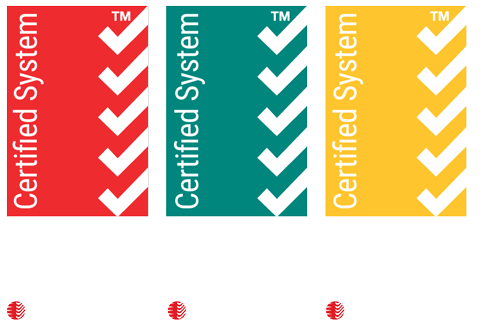Anti-Modern Slavery Statement
Introduction
Safe365 Limited is reporting on behalf of itself and its owned subsidiaries in relation to how we are approaching the global social evil that is modern slavery, and how we are addressing that problem within our own operations and supply chains. We are very committed to this cause, and so have voluntarily applied our anti-modern slavery programme for our group of companies, owned or controlled by Safe365 Limited (our parent company incorporated in New Zealand). In this statement, a reference to ‘Safe365’ means any and all of our companies with our group.
Safe365 oppose all forms of modern slavery practices and are committed to eradicating these practices from our own operations and supply chains. Modern slavery can take many forms, and even in Australia, New Zealand and the other countries in which we operate, modern slavery still exists. Some of its forms include forced or compulsory labour, servitude, trafficking in persons, debt bondage, forced marriage, forced prison labour and child labour. We are committed to identifying, preventing, mitigating and remediating modern slavery impacts connected to our business.
We recognise that as a purchaser and supplier of a diverse range of products and services, we must embed appropriate practices in our business and seek to work with suppliers who are aligned to our values.
In this statement, we set out the actions Safe365 has taken to recognise and minimise the risk of modern slavery in our business operations and supply chain.
Our structure, operations and supply chains
Safe365 works with organisations and communities around the world to solve their biggest work health, safety & well-being challenges, imagine new possibilities, and help move them to a better place by connecting people and technology.
Built on strong local values, world-class technology, and experienced people who genuinely care, Safe365 sets a new standard in SaaS and PaaS services. Safe365 supports customers through a broad range of services and solutions, all underpinned by robust industry experience and insight. Safe365 has 30 people working across Australia, New Zealand, South America and Asia. Safe365 is truly world-class in capability, and proudly local at heart.
Safe365 has a wide range of services and products including professional and technology management services, integrated SaaS & PaaS solutions, software reselling, and customer contact operations. The majority of Safe365 businesses operate in Australia, New Zealand and United Kingdom, with some technical operations in India.
You can find further information about Safe365 in on our website www.safe365global.com .
We work with approximately 100 suppliers globally. Our suppliers are generally large global providers of SaaS based business applications that are used to support our customer solutions or the conduct of our business operations. Our suppliers are mainly based in New Zealand, Asia and the United States of America.
Our relationships include suppliers from the following sectors: technology, hardware and equipment, facilities management, office supplies, catering, cleaning, ICT labour hire, professional services and marketing. We use these products and services in our business and we also operate as a reseller of products and services such as software solutions from our partners that compliment Safe365’s solutions.
Potential modern slavery risks
Our initial risk assessment and prioritisation of work focussed on the aspects we considered to be higher risk and to coincide with a broader programme of work we had commenced to improve and consolidate our procurement practices generally within Safe365. This has also been part of our ongoing integrated management system (IMS) work which underpins our ISO9001 (Quality Management), ISO45001 (Occupational Health and Safety Management) and ISO14001 (Environmental Management) certifications. We are also working towards ISO27001 (Information Security Management) in 2022. We have also paid greater attention to the modern slavery risks that would cause the greatest harm to individuals.
Internal operations
Our risk assessment identified that we have a lower risk of modern slavery. As a part of this assessment, we paid particular attention to areas that could be considered to be higher risk such as operations outside New Zealand and Australia undertaken by businesses within the wider Safe365 group, recruitment practices and temporary workforce arrangements.
The majority of our workforce are permanent employees and would be considered to be in the higher skill and lower risk brackets. Our employees are employed on contracts with standard terms allowing the employee to terminate their employment on notice and all employees are paid at or above the relevant minimum wage. We do have blocks of temporary workers from time to time which we use for “surge” resourcing in India – supplied directly through our recruitment and temporary workforce providers based in New Zealand. These companies are at the “high-end” of reputability and employ these workers, who we then induct, train and manage. This category is one we need to do further on to better assess the potential modern slavery risks. Finally, in our supply chain we have only a few individual contracted workers. These are largely individuals with specialised skills or experience and are engaged as professional contractors.
We also recognise that some of Safe365’s supplier operations in countries outside New Zealand and Australia are located in known higher risk geographies (particularly in Asia). While these operations are not controlled entities of Safe365, the services they provide are used by Safe365. To address the geographic risk we have performed a high-level review of the operational practices of our New Zealand based provider of this workforce and consulted with them to explain and help identify any potential modern slavery risks. This included considering and reviewing processes and systems and conducting interviews and discussions with key representatives.
We have also assessed the suppliers to our operations and will prioritise working with these suppliers further according to the higher risk categories we identified as a part of the general supply chain review and procurement consolidation process we are undertaking at Safe365.
Supply chain
For our supply chain, as a result of our supplier risk assessment outlined above, we identified very low risk suppliers through to those within a potentially high-risk category. In the higher risk category, we identified suppliers of technology products and services (for both internal use and on-supply or resale to customers), cleaning, maintenance services, freight, catering, office supplies, temporary workforce suppliers and marketing products and services. Of course, as this supplier risk assessment was primarily focused on industry and function, there is still more work for us to do to dive deeper into our major suppliers to look at specific geographies and actual practices of the specific suppliers.
We also understand that our suppliers have their own suppliers, which may also connect us to modern slavery risk. We do not currently have a detailed understanding of this risk beyond our first-tier suppliers. We are aware, however, of some industry risks that will be in the lower tiers of our supply chain.
We intend to prioritise our supplier engagement activities according to those higher risk categories over 2022/2023. We also intend to target a prioritised engagement programme and an on-boarding process to apply to all new suppliers to give us a better understanding of supplier related modern slavery risks while also making our expectations clear to our suppliers in respect to suppliers ensuring proactive awareness and effort to identify and eliminate modern slavery risks in their supply chains.
Our Human Rights Policy and Protected Disclosure Policy (“Whistleblower Policy”) specifically recognise the risk of modern slavery and encourages our employees, contractors and suppliers to report and act on any modern slavery concerns. Where concerns are investigated and substantiated, we are committed to taking appropriate action. Further information regarding the investigation process is publicly available in the Whistleblower Policy on our website.
Action to assess and address modern slavery risks
Our planned actions for 2022/2023 include:
- Embedding our Human Rights Policy and Protected Disclosure Policy
- Continue with our modern slavery risk assessment.
- Commence implementing anti-modern slavery commitments into our supplier contracts.
- Engaging pre-existing suppliers to gain further visibility of their status of understanding and applying polices and processes to address modern slavery risks.
Assessment of our effectiveness
To date, we believe that we have effectively put in place the initial foundation to assess and mitigate the risks of modern slavery in our internal operations and supply chain, and have started the process of raising awareness on this important topic. There is a lot more still to be done as our business grows and our policies become more embedded and our people increase in their awareness to collectively support Safe365 commitment’s on anti modern slavery.
We intend to continue with our actions listed above, and importantly, continue to educate and train our business teams so they are alert to the risks. Most importantly, we recognise this is not a static programme. We will seek to adopt a process of continuous improvement, assessing if processes are up-to-date and effective, and will endeavour to focus on the areas with the highest potential impact on people.
We also note that modern slavery policy statements are not a legal requirement in New Zealand. This statement and Safe365’s commitment to anti-modern slavery is made voluntarily because it aligns to our values as a business, because we understand its important to some of our clients who we undertake business with globally and because we can assist with increasing market awareness of this issue in our society so that generally more can be done to eliminate modern slavery.
Approval
This Statement has been approved by the Board of Directors of Safe365 Limited on 6th April 2022.
Nathan Hight – Director, Safe365 Limited
Mark Kidd – Director, Safe365 Limited



